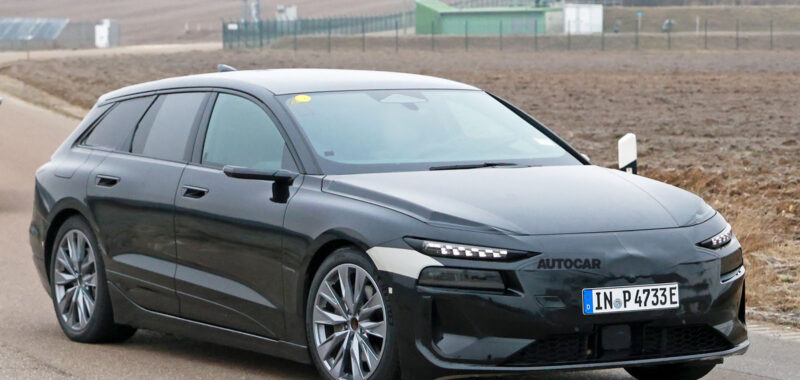Audi will reveal the long-awaited sixth-generation A6 saloon and estate today (31 July), making the landmark switch to electric power for one of its longest-running and most successful models.
The radical new Audi A6 E-tron has been previewed – in both Sportback and Avant bodystyles – in concept form, and a new preview image (below) suggests the production versions will stay remarkably close to those striking show cars, as has also been suggested by recently spotted prototypes.
The unveiling of the C9-generation A6 will come 30 years after the launch of the original A6, though that car’s predecessor, the 100, dates back to 1968.
The A6 E-tron will be Audi’s fifth pure-electric model line, and will be closely followed by electric successors to the A4, A8 and A3.
The combustion-engined A6 that’s on sale today will be heavily updated and rebadged the A7 in the coming months, with Audi retiring the luxury four-door coupé that currently uses that name.

The newcomer rides on the new PPE architecture that Audi has co-developed with Porsche for use in premium electric cars, as already deployed for the Q6 E-tron and its Porsche Macan Electric sibling.
Audi hasn’t yet given full details of the drivetrain, but the specifications will likely mirror those of the Q6 E-tron, which offers 396bhp and a 100kWh battery in ’55’ trim, and is equipped with 800V charging architecture, which means faster charging and less weight.
Elsewhere in the range, there will be a choice of performance-oriented dual-motor set-ups – including an S6 and RS6 – and efficiency-minded, rear-driven variants offering 0-62mph times ranging from “well under” 4sec to 7sec.
The Q6 has a circa-100kWh floor-mounted battery that gives a range of 435 miles and the ability to charge at a rate of 270kW, which allows it to gain 186 miles of range from a 10-minute top-up. Assuming it comes with the same battery pack, the A6 is likely to improve on that headline range figure by virtue of its lower, sleeker body.

